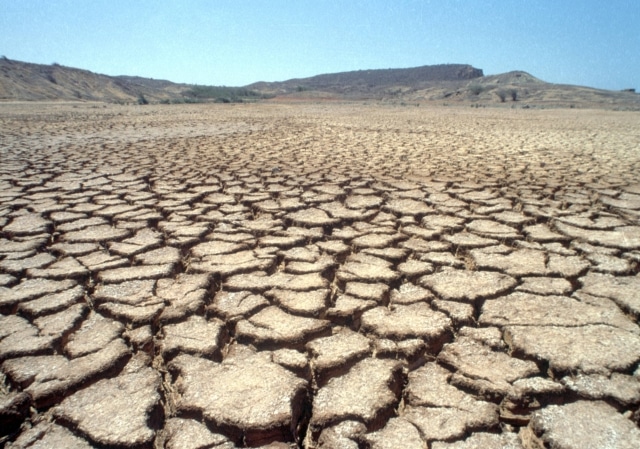This is a guest post by Charles W. Elliott, Esq.
Fact and fantasy took the stage at this past Sunday’s CBS “Meet the Press”. Bill Nye and Rep. Marsha Blackburn (R. Tenn.) appeared for a so-called “debate” on climate change.
Bill Nye is best known for his educational science program “Bill Nye the Science Guy”. Climate change-denier Rep. Blackburn is known, among other things, for echoing Sarah Palin’s claims that the Affordable Care Act included “death panels.”
Somewhat less known is Blackburn’s role as vice-chairman of the House Energy and Commerce Committee, responsible for legislative oversight on matters of public health, air quality and environmental health, and energy.
One would think that a person in such an important role would have a clear, if not advanced, understanding of the science of energy and climate change in order to guide policy to further the public interest and protect our children’s future.
Sadly, one would be wrong.
Let’s take a look at just one of Blackburn’s climate-change-denial themes: increased atmospheric carbon dioxide is actually good for us because, after all, carbon dioxide is food for plants and so we need to look at the “benefits of carbon”:
“Now, you know, when you look at the social cost of carbon, and there is a lot of ambiguity around that, what you also need to be doing is looking at the benefits of carbon and what that has on [sic] increased agricultural production.”
Real science utterly debunks Blackburn’s fantasy that atmospheric CO2-induced climate change could ever be a net benefit to agriculture. Apparently she’s never heard of heat waves, drought, and floods – or is willfully ignoring the mounting evidence of climate change harm.
Public policy must be based on facts, not fantasy. The science report Global Climate Change Impacts in the United States, (U.S. Global Change Research Program, 2009) lays out some of the agriculture-damaging impacts of climate change:
- While warming causes plants that are below their optimum temperature to grow faster, with obvious benefits, for some plants, such as cereal crops, however, faster growth means there is less time for the grain itself to grow and mature, reducing yields.
- The grain-filling period (the time when the seed grows and matures) of wheat and other small grains shortens dramatically with rising temperatures. Even moderate increases in temperature will decrease yields of corn, wheat, sorghum, bean, rice, cotton, and peanut crops.
- As temperatures continue to rise and drought periods increase, crops will be more frequently exposed to temperature thresholds at which pollination and grain-set processes begin to fail and quality of vegetable crops decreases. Grain, soybean, and canola crops have relatively low optimal temperatures, and thus will have reduced yields and will increasingly begin to experience failure.
- Plants need adequate water to maintain their temperature within an optimal range. Without water for cooling, plants will suffer heat stress. With increasing demand and competition for freshwater supplies, the water needed for these crops might be increasingly limited.
- Fruits that require long winter chilling periods will experience declines. Many varieties of fruits require between 400 and 1,800 cumulative hours below 45°F each winter to produce abundant yields the following summer and fall. By late this century, under higher emissions scenarios, winter temperatures in many important fruit-producing regions such as the Northeast will be too consistently warm to meet these requirements.
- Drought frequency and severity are projected to increase in the future over much of the United States, particularly under higher emissions scenarios. These droughts will be occurring at a time when crop water requirements also are increasing due to rising temperatures.
- Crop diseases in general are likely to increase as earlier springs and warmer winters allow proliferation and higher survival rates of disease pathogens and parasites. The longer growing season will allow some insects to produce more generations in a single season, greatly increasing their populations. Plants grown in higher carbon dioxide conditions tend to be less nutritious, so insects must eat more to meet their protein requirements, causing greater destruction to crops.
Our agriculture is fundamentally based on the stable global climate humanity has enjoyed for thousands of years. That is now disappearing and the evidence is right in front of us.
Doubt-sowing, non-leaders such as Blackburn, raking in campaign contributions from the fossil fuel industry, are adopting the same playbook of denial and delay strategies as did the tobacco, lead paint, and asbestos industries when confronted with the death and damage they caused.
For the links between denials and doubts by the tobacco industry and climate change deniers, check out the video “Rhymes with Smokey Joe.”
For a fuller account of the climate change denial apparatus, see: “Dealing In Doubt: The Climate Denial Machine v. Climate Science”.
Members of Blackburn’s E&C committee last month voted 24-20 against an amendment that would have stated conclusively that climate change is occurring and is caused by greenhouse gas pollution. Those twenty-four E&C members — all Republicans — have accepted about $9.3 million in career contributions from the oil, gas and coal industries, according to analysis by the CAP Action War Room.
According to Influence Explorer, Blackburn herself has reportedly accepted more than $280,000 from the oil and gas industries.
The coal, oil and gas industries are fueling the false climate debate. And while people like Blackburn are fiddling, the earth burns.
Photo credit: United Nations/Evan Schneider
Subscribe to our newsletter
Stay up to date with DeSmog news and alerts






